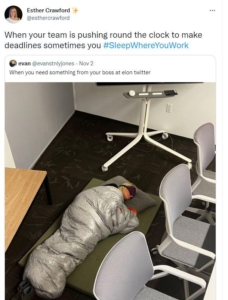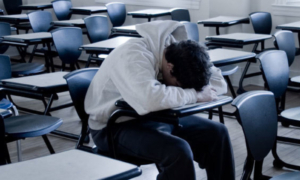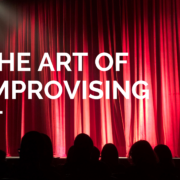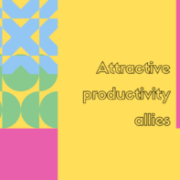THE SLEEPING RESISTANCE
The end of the semester is approaching; the lines to buy coffee become longer, and yawning is more common. Conversations about term papers and all-nighters of study are recurring. Arriving at my seminars I greet my friends with the typical “how are you?” and the constant answer is “tired”. Many of us are tired; the funny thing is that, in addition to being exhausted, we feel guilty for this. Why?

Twitter employee sleeping on the office floor. Source: Crawford, 2022.
A few days ago Eule Monique wrote about the pressure we feel when we are sick and cannot continue working “normally” (https://blogs.uni-bremen.de/eule/2023/01/22/zwischen-leistungsdruck-und-selbstfuersorge/). We have been socialized to perform, and not doing so implies enormous frustration and self-rejection thoughts. Although this disapproval is often internal and personal, it is fueled by a collective idea. Its source is the tyranny of performance. Welcome to the always productive, always available, always connected era.
Well, I have news for you: just as the most effective solution against any flu is to rest, the best way to resist the tyranny of performance is by sleeping.
Mathew Walker, an English scientist, identified that in the space of barely a hundred years, human beings have abandoned the biological need for adequate sleep, a need that evolution spent 3,400,000 years perfecting to put it at the service of vital body functions (Why we sleep, Captain Swing, 2020). The humans of today are increasingly sleepless. We are out of sync. Of course, we face a public health challenge; we know that not sleeping has negative and unavoidable physiological effects: a deteriorated body, which does not have enough time to regenerate, accompanied by a tired mind more prone to anxiety disorders, depression, and generally lower life satisfaction.
But the sleep deprivation epidemic doesn’t just have individual consequences; it is a collective risk. The levels of social participation in a tired society are very low, there is a minimum political initiative, and basically no interest in other areas than those necessary to function minimally. As Ramírez mentions: “The right to sleep has become a fight that goes beyond responsibility for individual rest and stands as a collective and social battle” (To sleep is not to be lazy, El País, 2023).
So how about we stop sanctifying maximum productivity and fixed deadlines? We don’t have to answer emails at 10 pm or feel guilty for deciding not to. We don’t have to sleep for two hours: it is not a cause for pride. Rather, we should defend our right to disconnect and our right to a complete night’s rest without the stigma of laziness; without feeling ashamed to say we’d rather sleep than work more, go to a party, or complete a task. Getting a good rapid eye movement (REM) sleep, which normally happens towards the end of the night, is particularly important for consolidating newly acquired information…a total benefit for students.
That’s why I’ve decided that my sleeping time is sacred and that it’s not negotiable, and you? Are you sleeping enough?

Source: Tuttle, 2017.








Happy to read you article. I put my health and basic needs in the frist place… I think it’s always about balancing a certain work or study achievement with the satisfaction of badic needs. I always would prefer less money and a part time job if that means health and better life condition.
Thanks for the info. I completely agree with you especially when you say it’s a collective problem so it is also my responsibility what I do to myself I do it to everyone. We could only think about our health but we must take care of all humanity. Thank you so much.